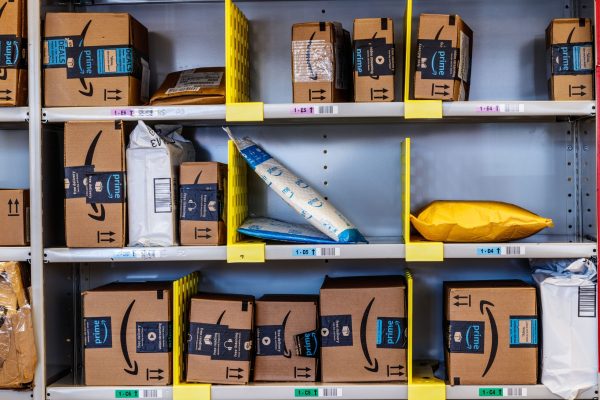Creating a strategic e-commerce roadmap is vital for a successful business operation. Your e-commerce strategy should drive all decisions for growth, helping you direct limited resources to the most important activities for the business. Digital Commerce 360 states: ‘Having a roadmap, a strategy, and an understanding of the different types of upgrades that are part of your commerce business… should all be part of your business model.’
A strategic e-commerce roadmap should therefore be fundamental to your business, so we’ll outline how you can go about developing one that will help keep your company focused and heading towards long-term success.
Ask the right questions to develop your strategy
A roadmap is a strategic plan that defines your organisation’s desired outcome, and includes the major steps and milestones needed to reach it. Whether you’re launching your e-commerce strategy or transforming an existing one, thinking about it like a journey will help you realise what your business needs in order to gain success.
Specifically, your journey can be divided into: where you want to go, what you need to get there, who can help you get there. This means working out why you’re creating your e-commerce strategy in the first place and what tools, technologies or skills you’ll need to bring on board. Also consider the team you need to assemble and the partners you should be working with.
Asking the right questions at this stage will help you piece together a strategy by forcing you to assess where your company currently stands. Who are your ideal customers? How do you want to represent your brand? What could you learn from last year’s performance? What are the top industry trends this year? What are the current limitations of your business? Why would customers buy from someone else?
Give serious thought also as to what your budget is for the next five years, but don’t make the mistake of producing your strategy by focusing on financial projections. The strategy and its implementation will dictate your numbers, not vice versa. And because your strategy may span into the future, keep returning to it, ask further questions, and amend when necessary. As Big Commerce advises: ‘With the continued evolution of e-commerce, this isn’t the time to get complacent.’
The answers to important questions such as these will shape your strategy by helping you understand what your current problems are (if there are no problems, there is no need for a new strategy), what your market is like, what your core competencies are, and your objectives.
Track your progress on your roadmap
Once you have a clear idea of where you want to go, you’re ready to map out the road! Every organisation is different with their own unique set of goals, but your strategy may typically involve SEO, content creation, trying different sales channels and maximising seasonal opportunities. Or you could have more large-scale ambitions, such as rebranding, international expansion, new-product development and rebuilding your online store.
Whatever your aspirations, make sure you define your key performance indicators from the outset so that you know you’re on track as you progress on your roadmap. When it comes to e-commerce, KPIs generally fall into one of five categories: sales, marketing, customer service, manufacturing and project management. Set effective goals and targets against a practical timeline, and keep measuring your success along the way to greater growth.
One common objective within most strategic roadmaps of e-commerce companies is to ‘improve shipping and fulfilment’. Our advice is to partner with a well-established organisation who can help you with your supply chain. They will have the expertise to handle an essential part of your operation more cost-effectively while using their own facilities, freeing you up to focus on growing your business.
Sprint Logistics is a global company providing worldwide supply chain, fulfilment, distribution, storage, mass mailing and e-commerce solutions. We pick, pack and ship thousands of parcels around the world every day and we’re committed to ensuring you hit all the logistics goals of your long-term strategy.
For further advice on the logistics solutions that will work for you and fit into your e-commerce strategy, contact us now.




